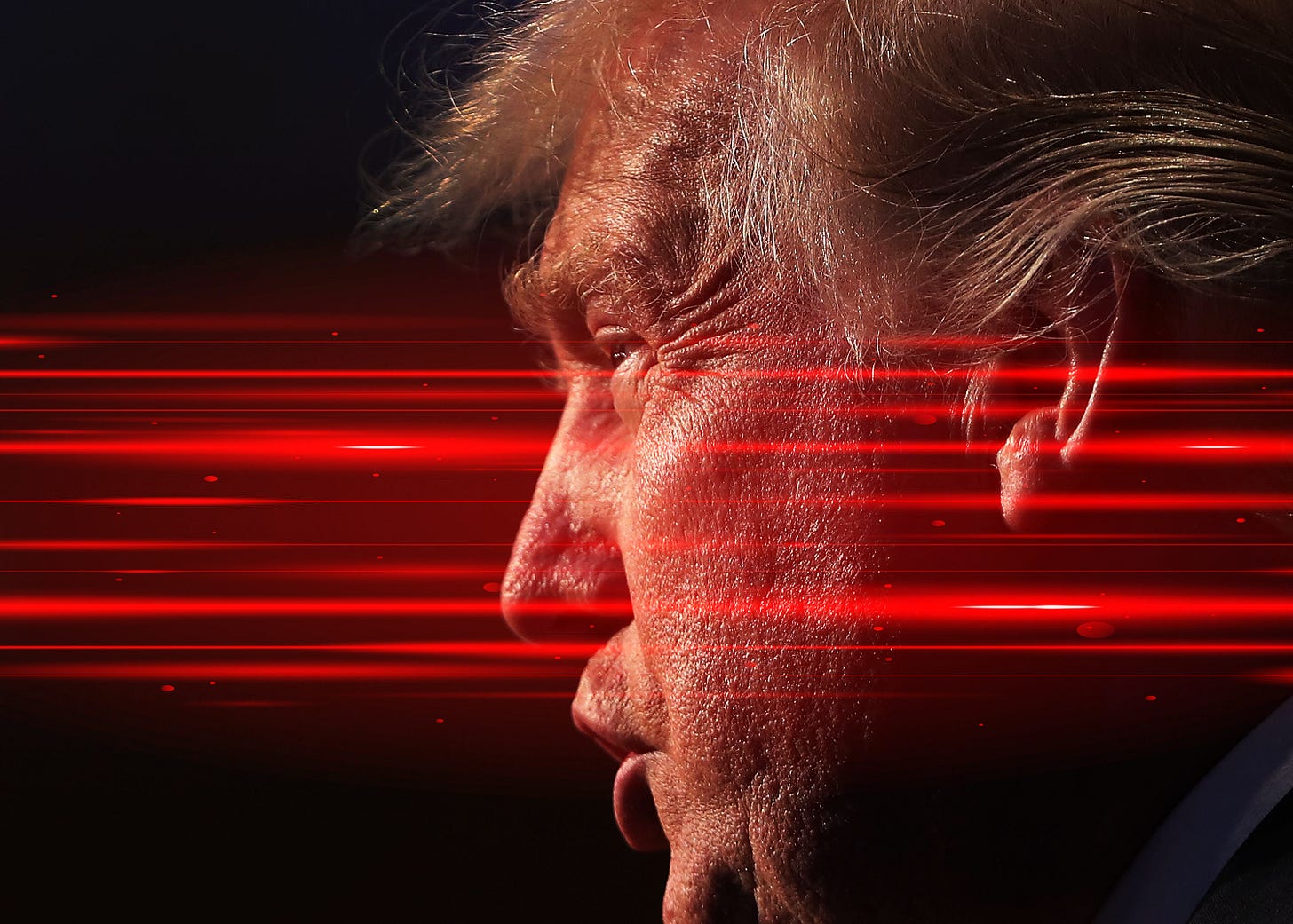No, Trump Could Not "Wipe Afghanistan off the Face of the Earth"
On Monday, President Trump said, “I have plans on Afghanistan that if I wanted to win that war, Afghanistan would be wiped off the face of the earth, it would be gone, it would be over in literally 10 days.” This statement suggests that America’s commander in chief either does not care about or does not understand the nuances of war.
First of all, to wipe a country “off the face of the earth” is the literal definition of genocide. The United States should not consider genocide as a military option because it is immoral, illegal—both under international law and U.S. law—and against our interests. Also, it seems unlikely that the American people would support it.
It is shameful that the president of the United States would talk about this publicly, even in the context of not doing it.
And consider what “wiping Afghanistan from the face of the earth” would entail, just as a matter of logistics. President Trump referred to the dropping of the Massive Ordnance Air Blast two years ago, otherwise known as the Mother of All Bombs (or MOAB). But the United States only has twenty of these devices, nowhere near enough to kill 10 million people in a large, sparsely populated country. So Trump’s “plan” would require the use of nuclear weapons.
But that doesn’t do it either. The power of nuclear weapons to annihilate an entire country is often overestimated. The United States’ nuclear arsenal is not big enough to annihilate Afghanistan’s entire population of 32 million people—a Johns Hopkins University’s Applied Physics Laboratory found that 2,000 nuclear explosives would demolish less than 5 percent of the United States’ population—much of which is spread in rural areas with low population density.
And even if we wanted to annihilate Afghanistan with nuclear weapons, it would be strategically insane to do so. The United States already possesses fewer nuclear weapons than its chief nuclear adversary, Russia. In an excellent survey of nuclear strategy, The Logic of American Nuclear Strategy, Georgetown University Professor Matthew Kroenig makes a convincing case that nuclear supremacy is a great advantage in international relations. The use of such a scarce weapon in Afghanistan would further diminish the already-not-so-great nuclear advantage that we rely on every day for deterrence and coercion.
Finally, the current state of international affairs has a taboo around the use of nuclear weapons. This is helpful because it makes the chances of an ill-considered nuclear exchange less likely. Having the president of the United States talk casually about the use of nuclear weapons can only serve to weaken a taboo which—again—functions in America’s interest by preserving a status quo in which we have an advantage.
Let’s keep picking nits: Trump didn’t say he would kill the entire population of Afghanistan. He said he would kill 10 million Afghans. If you were to take him literally (or serious—it’s hard to remember which is which) this would mean hitting Afghanistan’s urban centers and leaving the remaining 22 million people in rural areas intact—but without a central government. Which, in turn, would probably result in the radicalizing of 22 million stateless people in opposition to the United States. Also not in America’s interest.
Then look at why Trump said he wouldn’t do any of this: Because, according to him, he doesn’t want to win the war. He literally began his remarks with “if I wanted to win the war.” Which means that the commander in chief’s message to the troops is: Thank you for your continuing service in Afghanistan, but the purpose of your service is not to win the war you are fighting.
What is the president’s strategy? Relying on peace talks with the Taliban and Pakistan. AEI’s Michael Rubin makes a compelling case on why relying on Pakistan for a resolution in Afghanistan is a terrible idea: It’s because Pakistan is part of the problem. Even if the country’s new president, Imran Khan, wanted to help—evidence suggest to the contrary—he couldn’t, since Pakistan’s military intelligence service is a parallel state that doesn’t answer to Khan and follows its own agenda.
Should we even be in Afghanistan? There are many smart policy experts who question the wisdom of our continued involvement in the region. That’s certainly a point of view the president should consider in the age of the great power competition.
There is also a strong argument that the region cannot be separated from great power competition, that we have a moral obligation to fix what we broke, and that we have a strategic interest in leaving behind a stable Afghanistan so another 9/11 or Islamic State shock won’t happen there.
But such debates require attention to details, intellectual investment on the part of the commander in chief, and a clear-eyed understanding of both our capabilities and the limits of our power. Be honest now: Whatever your opinion of him, d oes Donald Trump strike you as a man with any of those traits?
In his seminal book Supreme Command, Eliot Cohen argued that the outcome of wars ultimately comes down to the civilian commander in chief. The best two examples here are Abraham Lincoln and Winston Churchill. We might have been living in the Confederate States of America if Lincoln had left the details of war to his generals, or in the Nazi States of America if Churchill had done so. Witness how the Iraq War went south when President Bush left it to George Casey, the commanding general, and how it was revived when President Bush changed the strategy and got involved in it.
The difference is that Lincoln, Churchill, and Bush all had the capacity to pay attention to the details. Donald Trump clearly, obviously, does not. And this should frighten us as much as it makes our adversaries smile.


